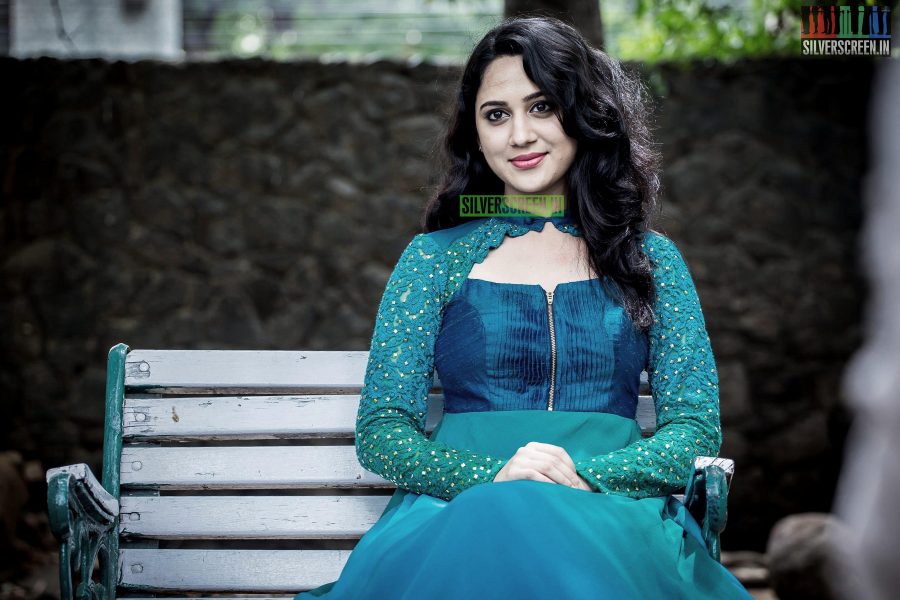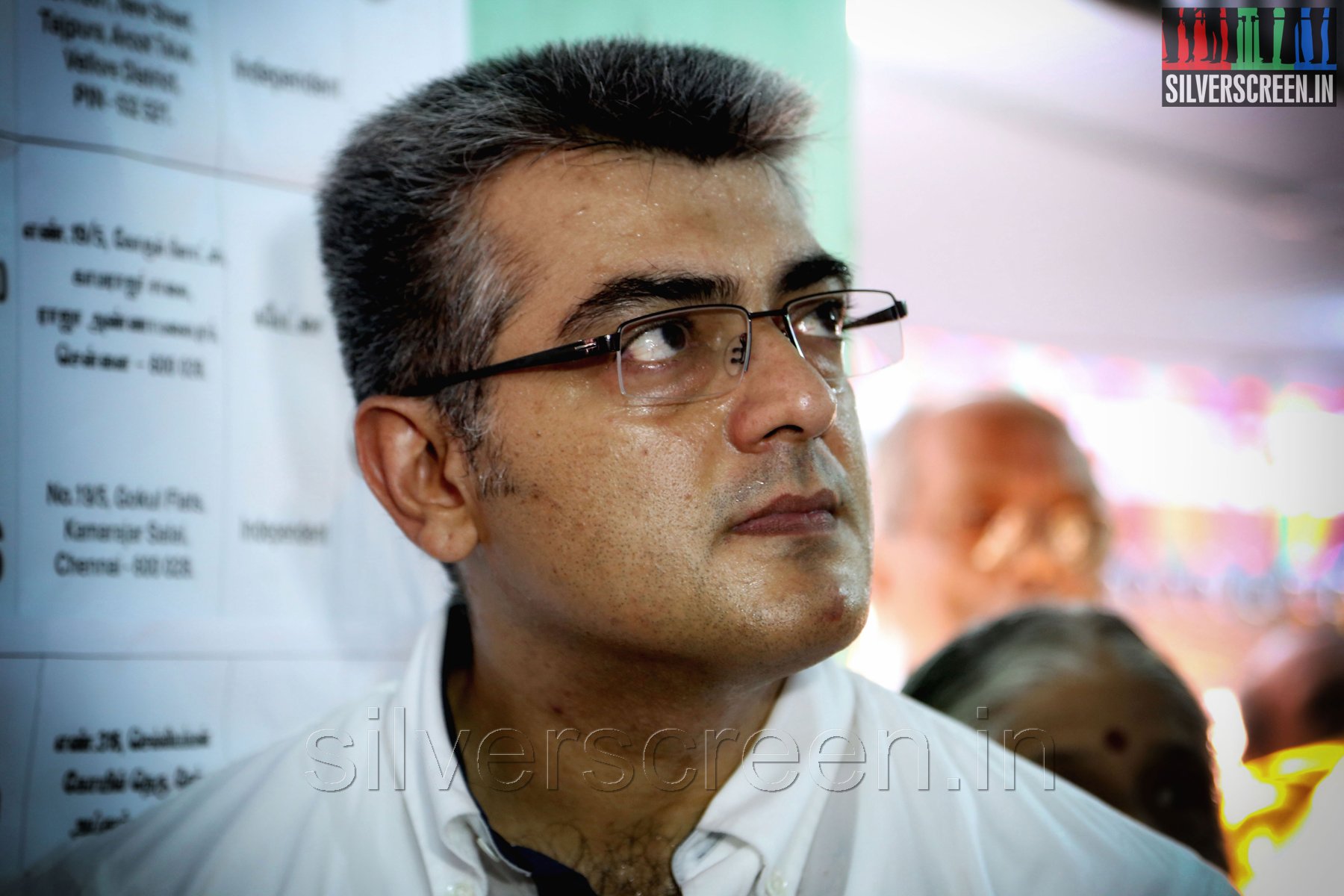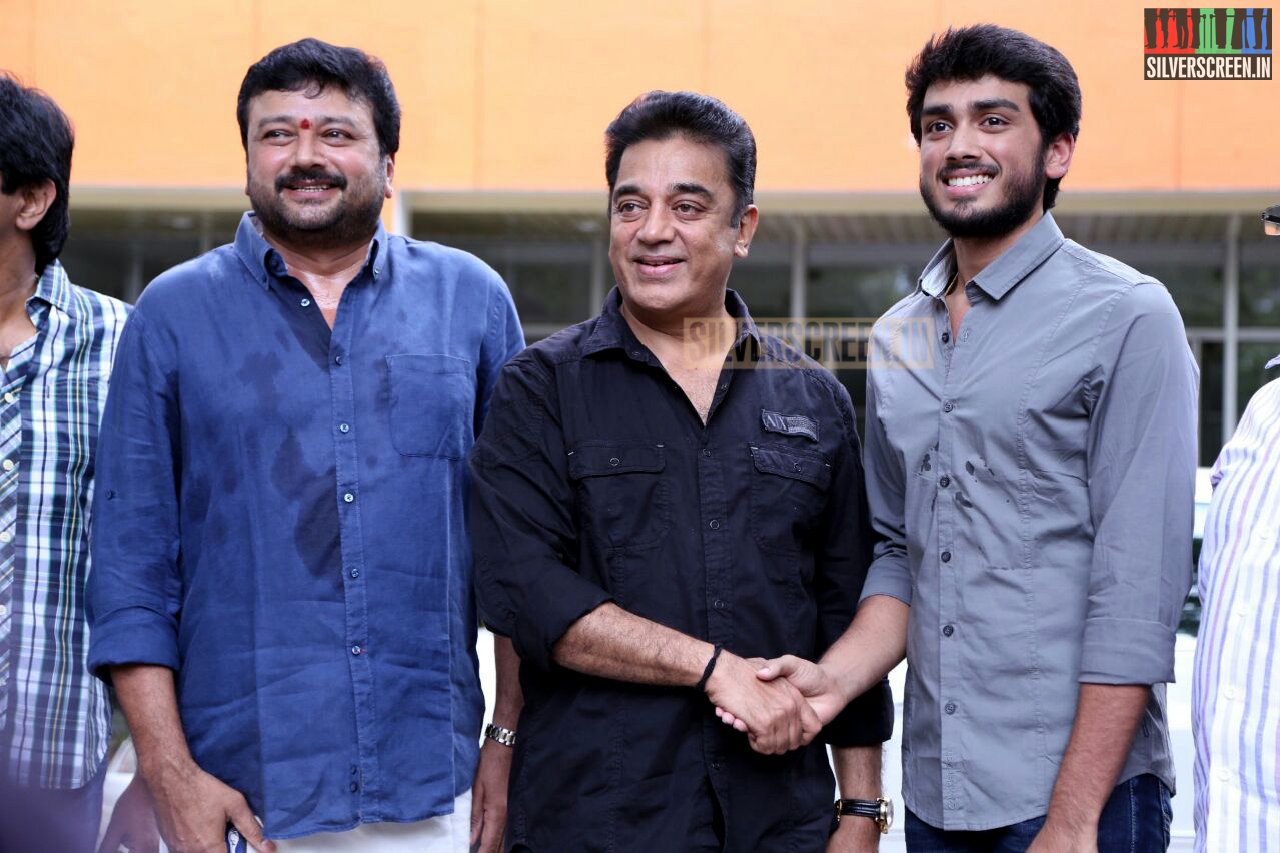I dial Miya’s number on the lazy afternoon after a busy Thiruvonam, the annual festival for which Malayalees living outside Kerala rush to the state to celebrate with their families. Miya spent her Onam in Kerala, on the sets of Paavada, in which she is paired opposite Prithviraj. “We had a blast! A sumptuous Onasadya (traditional feast), many gifts, and a lot of fun moments,” Miya sounds jovial at the other end of the phone. “Last year too, my Onam was spent at a shooting location. Still, I make it a point to not miss out on the celebrations,” she says.
So how did it all begin? For Miya, it was with Malayalam television, where she played Mother Mary in the popular serial Alphonsamma. Her cherubic face and gentle smile suited the role perfectly. In between she modelled for a few brands. Her first role was the embittered wife of a man whose life revolved around his friends. She was 20. She had to act drunk. And hold her own against senior male co-stars. Her performance was effortless and her role in Chettayees earned Miya much praise.
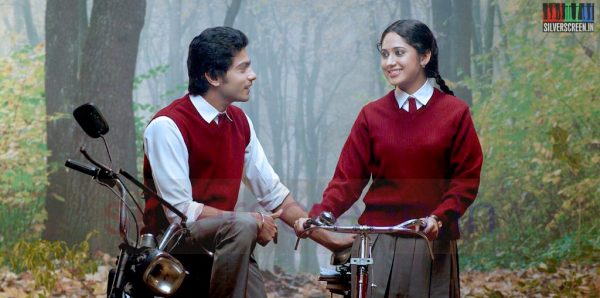
Actor Sathya and Actress Mia George in Amara Kaaviyam Movie Stills
Miya entered Kollywood after completing 12 films in Malayalam. “When Amara Kaaviyam came by, I couldn’t reject it. The story was beautiful, and I had a lot of space to perform.” Miya feels fortunate to be a part of the ‘new wave cinema’ in Malayalam and Tamil. “The style of film making, the technical part, and the acting style have all changed so much from the olden days. There is a lot more opportunity for actors and actresses than before. New themes, ideas, and experiments.” It’s clear from the enthusiasm in her voice that this is an actress who lives and breathes her craft.
The main challenge she faced in Kollywood was the language. “I’m trying to master Tamil. I would like to do many more films here,” she says. Is Kollywood different? In Tamil, she says, it takes longer to finish a movie. “In Mollywood, most of the films are completed in a single schedule. Here, it takes more than one. This is the only real difference between the two industries.” The difference is more pronounced when you compare with earlier films. “When it comes to acting, I try not to make my performance too ‘loud’ and overtly expressive. Earlier, in our films, actresses had to ‘act’ a bit over the top. Nowadays, filmmakers as well as the audience, prefer subtlety. I like the ‘behaving style’ of acting. I have always followed that.”
What about fans and feedback? “In Kollywood, the response from the audience is on a different scale. Here, they love cinema and think of it as a part of their daily life. Cine artistes are respected and adored. I have a Facebook account, and I’m not very active on it. But after Amara Kaaviyam and Indru Netru Naale, so many people sent me complimentary messages on Facebook. The effort they took to appreciate my performance was heartening.”
But being a woman in the limelight, of course, means having to deal with hostility and verbal abuse. Facebook messages, she says, can sometimes be excessive and even damaging. “Some of my colleagues have had many bitter experiences on social networking sites. The vulgar comments and abusive remarks people jot down on Facebook and other platforms can really hurt the actor/actress. I think that many people think celebrities are public property, and you can do anything to them. Artistes are human beings too. Some men enjoy making vulgar comments, and use abusive language with actresses. It’s sad that our society doesn’t know how to respect women. My policy is to ignore such elements and move on.”
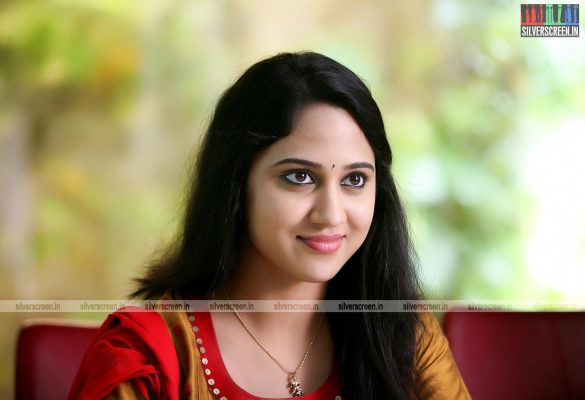
In fact, any media coverage on women, says Miya, needs to be processed with a filter. “What I’ve learned from my short stint in films is that one should always take media reports with a pinch of salt. Especially when it comes to cinema, people are obsessed with gossip and personal details of the actor/actress’ lives.” To a ridiculous extent. “Last Mother’s Day, I posted a picture of me and my mother on Facebook. Along with that, a note about my mom being my best friend and my ultimate pillar of support. I wrote about how she accompanies me everywhere, and that college is the only place I’ve been to without her with me. And the next day, a website carried an article with a headline, ‘Guess Where Miya Refuses To Take Her Mom Along!’ It was full of innuendoes.” Sadly, this isn’t surprising to hear.
And that’s not an isolated instance. “One of my recent films, Anarkali, was shot in Lakshadweep. We had to work in hot and humid conditions, but I totally enjoyed the shoot. Sometime later, I found out that a magazine had carried a fake interview with me, which said that I was depressed after the Lakshadweep shoot as my skin had turned several shades darker. I am not beauty conscious like that. I hold my love for acting over my physical appearance.”
Recommended
The contrast between the committed and talented artist, and the rubbish she has to deal with has me a little speechless. I can’t help asking if she ever considers alternative career options. After all, she’s an English Literature graduate. “I guess if I hadn’t become an actress, I would have been a teacher,” she says. Then the excitement is back, “But I love being an actress. It offers fresh challenges every day. There is no monotony. It’s creative, and I love the fact that people whom I haven’t met in life love me like a family member. It’s a rare blessing.”
Miya admits that there’s a certain insecurity among film artistes. “Competition is stiff, and there’s no dearth of talented people in the industry. Sometimes, this sense of insecurity does affect me. But I believe in being myself, and that there is space for me in the industry.”
Anyone might think that being an actress is about ‘looking beautiful’ and showing up on sets, but no. “Work can get stressful. Day-long shoots which could go on through the night and even into the next day. Performing in sequences that drain you both physically and mentally. Missing out on your best friends’ wedding and close family functions. It’s a part and parcel of my profession.”
Of her forthcoming films, Oru Naal Koothu is the one she’s looking forward to the most. “It’s an adorable character who conveys her emotions subtly. Eye-contact, smiles. In Paavada, I’m paired opposite Prithviraj for the second time, after Anarkali.”
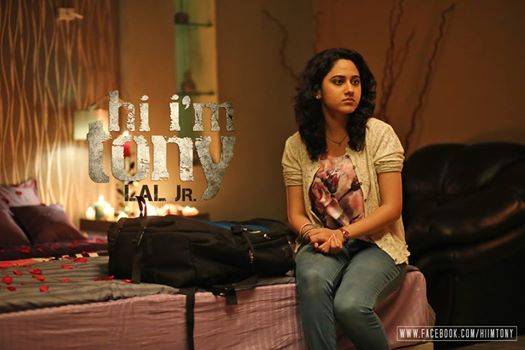
maya-tony
There are a lot of reasons for becoming an actress, but Miya has, quite possibly, the best one. “I watched Baahubali recently. I would love to work in a film like that. The team effort, the giant budget, the perfect technical assistance. And great performances. Baahubali is truly an inspiring film for any artist. I don’t want to limit myself, as just another actress who does forgettable roles in commercial films. I want to be known as a performer. I don’t care about the number of scenes my character has in a film. The role has to be memorable. Audiences should talk about my role.”
*****
The Miya George interview is a Silverscreen exclusive.
